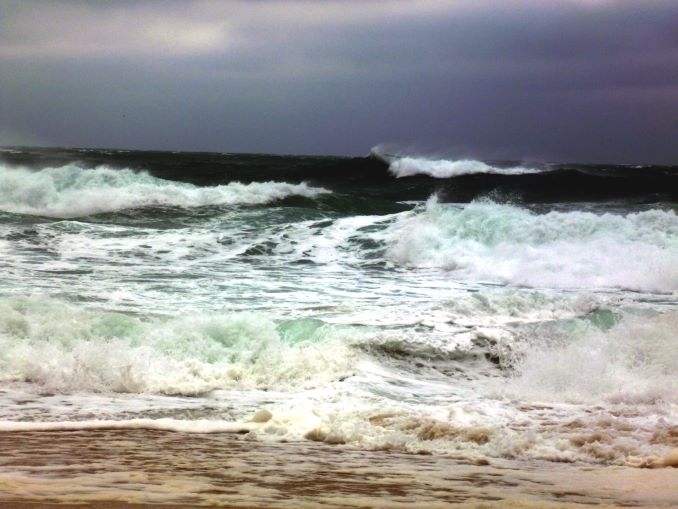Porthcurno

Porthcurno is a small village off the B3283 southwest from St Buryan and about nine miles west of Penzance close to Lands End. Porthcurno beach is some yards south of the village with Logan Rock headland in the distance. The coastline around the bay is popular with walkers and seen as an area of outstanding beauty. In the cliff face to the west of Porthcurno is the open air Minack Theatre built by Rowena Cade with a backdrop of the Bay and Logan Rock Headland.
Our visit
On this windy day with darkening clouds was spectacular. The heavy seas produced wonderful big white topped waves that crashed on to the surrounding rocks and the fine sands of the beach. The area is beautiful and has the added attraction of the Minack Theatre.
The Minack Theatre, Porthcurno, Cornwall
Minack comes from the Cornish word meynek meaning 'rocky place'. A perfect description of the location of The Minack Theatre in Porthcurno, Cornwall. It was planned, financed and built into the cliffside by the remarkable Rowena Cade. At the first performance of 'The Tempest' in 1932 the stage was a grass terrace and the lighting provided by car headlights, batteries and inadequate power was obtained from nearby Minack House. Today the theatre has developed into a well-equipped, internationally famous theatre with the spectacular backdrop of the beautiful Cornish coast.
Rowena Cade (1893-1983) moved to Cornwall following the First World War and a house was built at Minack Point. Involved with and inspired by outdoor productions of Shakespeare's 'A Midsummers Night's Dream' at nearby Crean in 1929 and 1930. Rowena Cade offered the coastal location near her home as a perfect setting for Shakespeare's 'The Tempest'. The performance took place in 1932 with the terrace and basic seating made by Rowena Cade and her gardener. The performance was a success.
Following that initial performance Rowena Cade strove to improve the theatre and its facilities. Much of the backbreaking work was undertaken by Rowena Cade herself, running the theatre on shoe-string budget and subsidising the enterprise with her own money. This process of improvement, with an interruption during the years of the Second World War, has continued ever since. Rowena Cade died at the age of 89 on 26 March 1983. Her legacy lives on with the theatre managed by a charitable trust. The theatre can be visited all year round with performances taking place between May and September.
Celtic nation:
- Cornwall
Itinerary:
- Cornwall southwest
Place type:
- Village/Town/City





















